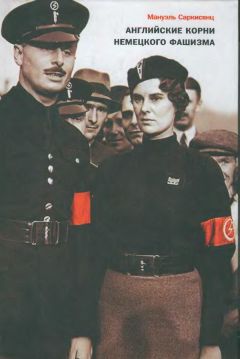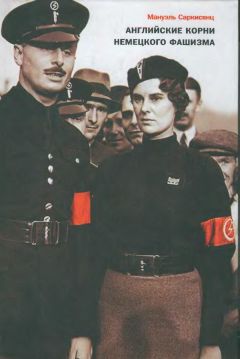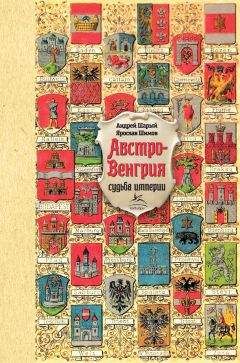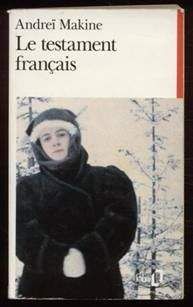508
Disraeli, Earl of Beaconsfield, Selected Speeches, II, p. 531–533.
Ibid., p. 528; Ross MacKibbin, Class and Culture in England 1918–1951 (New York, 1998), as reviewed in American Historical Review, Vol. CV, № 2 (April, 2000), p. 614; cf Joseph Schumpeter, «Zur Soziologie des Imperialismus»: Archiv fur Sozialwissenschaft und Sozialpolitik. Vol. XLVI (1918/1919), S. 6, 8.
Wingfield-Stratford, II, p. 517, 585; P. Marsch, The Conscience of the Victorian state (1979), p. 191; cf. Wilkinson, The Prefects, p. 51; Mackenzie, Imperialism and Popular Culture, p. 199; Baden-Powell, Scouting for Boys, p. 245.
Disraeli, Rede vom 24. Juni 1872: Selected Speeches, II, p. 530.
Disraeli, Lothair: Novels and Tales, XI, p. 382.
Arendt, S. 43.
Ruhl, Disraelis Imperialismus, S. 161.
James Drennan, Der britische Faschismus und sein Fuhrer (Berlin, 1937), S. 230, 11, 21.
Benjamin Disraelis Rede vom 11. August 1876: Selected Speeches, II (London, 1882), p. 156.
Ibid., II, p. 160.
Wingfield-Stratford, II, p. 587.
Oskar Schmitz, Englands politisches Vermachtnis an Deutschland durch… Disraeli (1916), S. 395.
Arendt, S. 288.
Disraeli, Coningsby, Such IV, Kapitel xv = Disraeli, Novels and Tales, (London, 1927), p. 262; Cambridge History of English Literature, Vol. XIII, ii (Cambridge, 1916), p. 351; W Flavell Monypenny and Earle Buckle, Life of Disraeli, Vol. III (1914), p. 60; P. Marsch, Conscience of Victorian State, p. 234.
В оригинале: «of brutes or economic men» (англ.) (прим. автора).
Wingfield-Stratford, II, p. 581.
Ibid., II, p. 549: «Disraeli and Young England»; Ch. Richmond and Paul Smith, Self-Fashioning of Disraeli 1818–1851 (Cambridge, 1998), p. 160.
MacKenzie, pp. 128, 138.
Immanuel Kant. «Anthropologische Charakteristik»: Kant, Werke. Akademische Textausgabe, Bd. VIII (Berlin, 1968), S. 315; Кант Я. Соч. в шести томах. М., 1966. Т. 6. С. 567.
Wingfield-Stratford, I, S. 383. J. A. Mangan, Game ethics and Imperialism (Harmondsworth England, 1985), p. 34, 44; cf. Sir C. P. Lucas, Greater Rome and Greater Britain (Oxford, 1912), pp. 97, 99 and James Bryce, The Ancient Roman Empire in India, p. 74.
R. Wilkinson, The Prefects. British Leadership and the Public School Tradition (New York, 1964), pp. 87f, 83f; N. C. Macnomara, Origins and Character of the British People (London, 1900), p. 227; С. E. Eckersley, England and the English. A book for foreign students (London, 1942: Egyptian edition), p. 138.
Уорр Эдмунд (1837–1920) — директор Итона, пребендарий.
Gleichschaltung (нем.) — нацистская политическая концепция подчинения всех сфер жизни Германии интересам национал-социалистического режима; термин времен нацизма.
Edward C. Mack, Public Schools and British opinion since 1860. The relationship between contemporary ideas and the evolution of an English institution (New York, 1973), p. 156, quotes Cornhill Magazine (1873), p. 287; cf. Esme Wingfield-Stratford, The Squire and his Relations (London, 1956), pp. 398f.
Mack, p. 333, quotes English Review (April 1918), p. 335ff; W. T. Stead, The Last Will and Testament of Cecil J. Rhodes (London, 1902), p. 39.
Lunn, Loose Ends (London, 1919), p. 45, 58, 107; Francis Brett Young, The Young Physician (London, 1919), p. 14, 82, quoted in Mack, p. 333.
Mack, p. 390.
Mack, p. 449; Thost, Als Nationalsozialist in England (Munchen, 1939), S. 63.
Heinrich Himmler, Geheimreden, S. 156: Ansprache vom 9. Juni 1942.
Ibid., S. 74: Ansprache vor preussischen Staatsraten am 5. Marz 1936.
James Wellard, Understanding the English (1937), S. 85–95, quoted in Mack, p. 449f.
John Galsworthy's Article «Public Schools and Caste fadories» (of 27. May 1912): H. V. Marrot, Life and letters of John Galsworthy (New York, 1936), p. 703–705 cited in: Mack, p. 284; Wilkinson, The Prefects, p. 4.
Mangan, Game ethics and Imperialism, p. 30, 33.
Ibid., p. 32.
Esme Wingfield-Stratford, History of English Patriotism (London, 1913), Vol. II, p. 458, 573.
John Galsworthy's Article «Public Schools and Caste factories» (of 27. May 1912): H. V. Marrot, Life and letters of John Galsworthy (New York, 1936), p. 703–705 cited in: Mack, p. 284.
Mack, p. 369.
Ibid., p.404.
Ibid., p. 23ff, 40f; Anthony Sampson, Wer regiert England? Anatomie einer Fuhrungsschicht (Munchen, 1963), S. 202.
Thomas Hughes, Tom Brown's School Days (Oxford, 1989), p. xxxivf, xxxviiff; Rudyard Kipling, Complete Stalky & Co. (Oxford, 1987), p. 128–138.
Report of the Public School Commission (1864), III, 3 (Teil i), S. 475ff, 506ff, quoted in: Mack, p. 25.
Mack, p. 405f, 414.
Adolf Hitler, Mein Kampf (Munchen, 1933), S. 459; Sampson, Wer regiert England? (wie Anm. 499), S. 202.
Mack, p. 226.
Geoffrey Drage, Eton and the Empire (Eton, 1890), p. 16: Mack, S. 217.
Thomas Henry Huxley, «On the advisableness of improving natural knowledge»: Methods and Results (1866), S. 40, quoted in: Houghton, Victorian frame of Mind, p. 106, 95.
David Newsome, Godliness and good learning. Four studies on an Victorian ideal (London, 1961), p. 197f, 209; Allen J. Greenberger, British image of India (Oxford, 1969), p. 25.
Эйр Эдвард Джон (1815–1901) — англ. путешественник (исследователь Австралии) и гос. деятель; с 1846 г. — губернатор провинции в Новой Зеландии, 1861–1864 гг. — и. о. губернатора Ямайки, 1864–1866 гг. — губернатор Ямайки.
Alec Waugh, Vulkan Westindien, Die karibische Inselwelt von Kolumbus bis Castro (Munchen, 1967), S. 266, 269; James Froude, Carlyle. A history of his Life in London (London, 1884), II, Kapitel XXVI, p. 265; Lord Oliver, The Myth of Governor Eyre (London, 1933), pp. 284f, 314, 320f, 338; Bill Schwarz (Editor), The Expansion of England. Race, ethnicity and cultural history (London, 1996), p. 163..
Christine Bolt, Victorian attitudes to Race, pp. 103, 105, 93, quoting The Scotsman of 4. August, 1866 and Popular Magazine of Anthropology, Vol. I (1866), pp. 14f.
Thomas Carlyle, «A discourse on Niggers»; Carlyle, «The Nigger Question» (1849), in: Miscellaneous Essays, Ы. IV (New York, 1900), p. 355, 367f.
Thomas Carlyle, Latter Day Pamphlets (London, 1911), p. 135, 141.
Carlyle, Past and Present (London, 1897), p. 160f.
Houghton, p. 123.
Ibid., p. 201.
Mack, Public Schools and British Opinion, p. 423.
James Fitzjames Stephen, Liberty, Equality, Fraternity (as note 223), p. 4.
Adolf Hitler, Mein Kampf (Munchen, 1933), S. 69.
R. Cecil, The Myth of the Master Race, p. 135.
До гитлеровского геноцида (прим. автора).
Lieutenant Colonel Arthur Osburg, Must Britain lose India? (London, 1930) quoted in: Reginald Reynolds, The White Sahibs in India (Westport, 1970), p. 275.
Betina Parry, Delusions and discoveries… India in the British Imagination 1880–1930 (London, 1972), p. 48.
Ibid., p. 34; Cecil Headlam, Ten Thousand Miles through India and Burma: An account of an Oxford University… Cricket Tour (London, 1903), pp. 94, 98,16; Richard Symonds, Oxford and Empire (Oxford, 1991), p. 199, quoting Letter of Sir John Maynard to G. Murray of 20. March, 1987; Robert MacDonald, Language Empire (Manchester, 1994), p. 220.
Уэллдон Джеймс Эдвард Коуэлл (1854–1937) — епископ.
Mangan, Games ethics and Imperialism, p. 38; David Baker, Ideolody of Obsession. A. K. Chesterton and British Fascism (London, 1996), p. 163; Christopher Hibbert, The Great Mutiny. India 1857 (New York, 1982), p. 39 (reference 50); Alain Cairn (Editor), Prelude to Imperialism. British reactions to Central African Society 1840–1890 (London, 1965) pp. 49, 41.
Эмери Леопольд Чарлз Морис Стеннетт (1873–1955) — англ. гос. деятель, консерватор. В 1922–1924 гг. — первый лорд адмиралтейства, 1924–1929 гг. — министр по делам колоний, 1940–1945 гг. — министр по делам Индии и Бирмы.
Missed footnotetext
Хьюз Томас (1822–1896) — англ. юрист и писатель, приверженец «мускулистого христианства».
Houghton, p. 204; D. C. Somervell, Geistige Stromungen in England im neunzehnten Jahrhundert (Bern, 1946), S. 136.
Adolf Hitler, Mein Kampf (1933), S. 454–455; Thomas Hughes, Tom Brown's School-Days (Oxford, 1989), p. 283, 301, 404.
Thost, Als Nationalsozialist in England (Munchen, 1939), S. 82; J. A. Cole, Lord Haw-Haw and William Joyce (London, 1964), p. 31; G. StrobI, The Germanic Isle (Cambridge, 2000), quoting Morgen: Nationalsozialistische Jugendbldtter, № 11 und 12 (1935).
Т. C. Worsley, Barbarians and Philistines. Democracy and the Public Schools (London, 1940), pp. 74, 7, 10, 16; Wilkinson, The Prefects, p. 178.
Hitler, Monologe im Fuhrerhauptquartier, S. 213:18./19. Januar 1942; Fortnightly Review, Juni 1882, p. 684f cited in Mack.
Hermann Keyserling, Reise durch die Zeit («Schweiz», 1948), S. 135, zitiert nach Geoffrey Field, H. S. Chamberlain, Prophet of Bayreuth, p. 359f; Mack, p. 72.
Robert Briffault, Decline and Fall of the British Empire (New York, 1938); J. Wellard, Understanding the English (New York, 1937), quoted in: Mack, p. 449f.
Mangan, Games ethics and Imperialism, p. 27–28.
Ibid., p. 25–27; Rudyard Kipling, Land and Sea Tales for Scouts and Guides (London, 1951), p. VI.
Mangan, Games ethics and Imperialism., p. 27.





